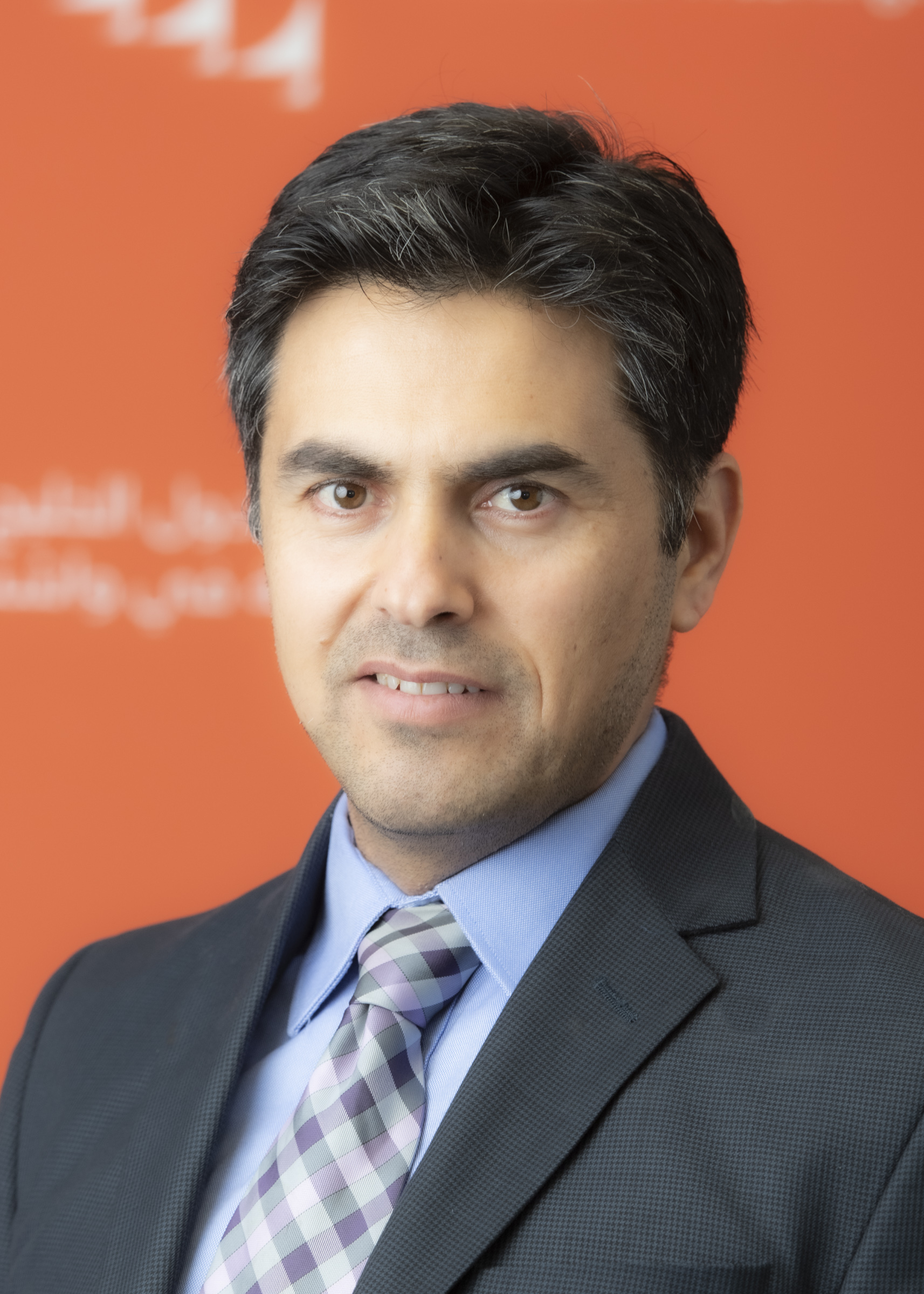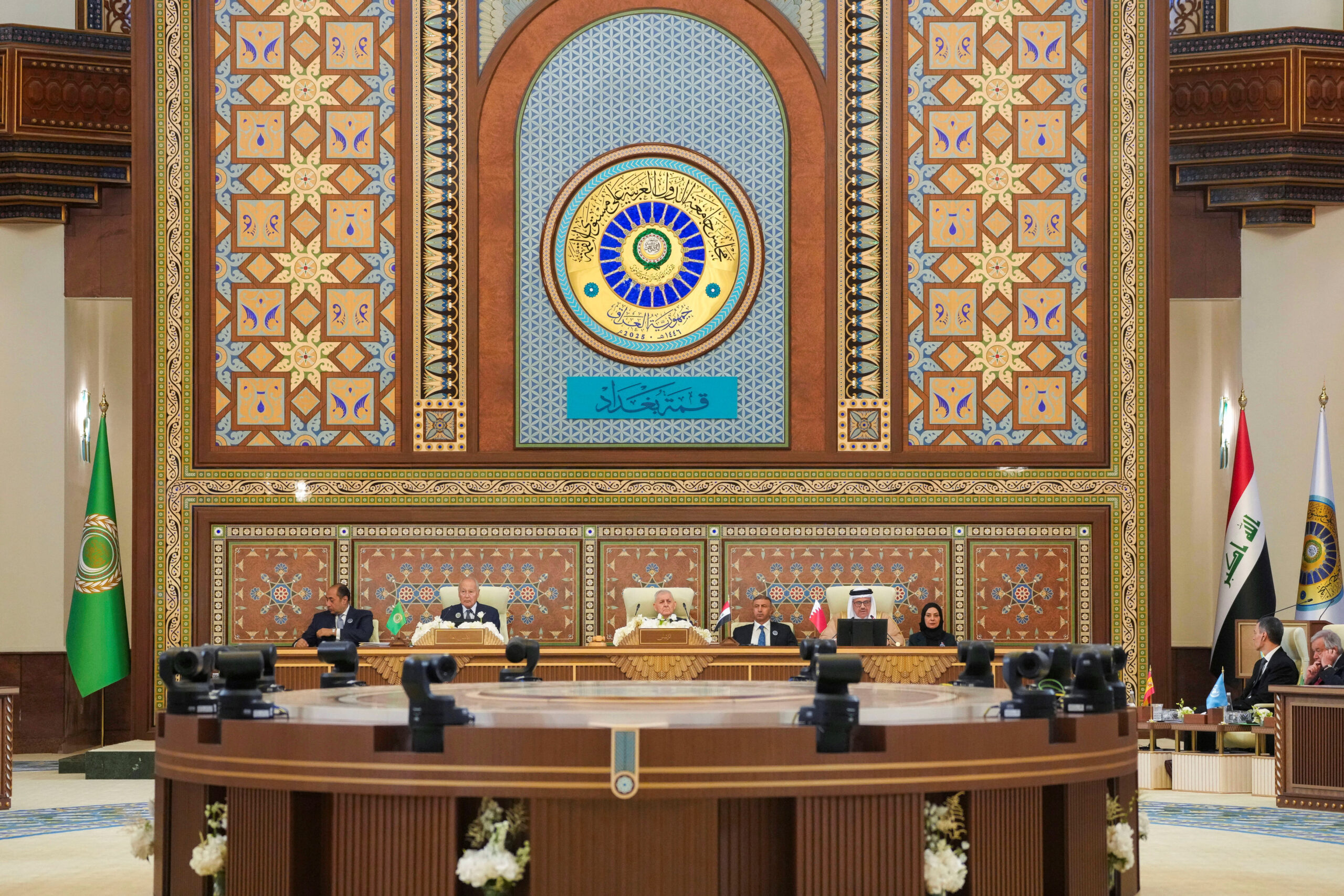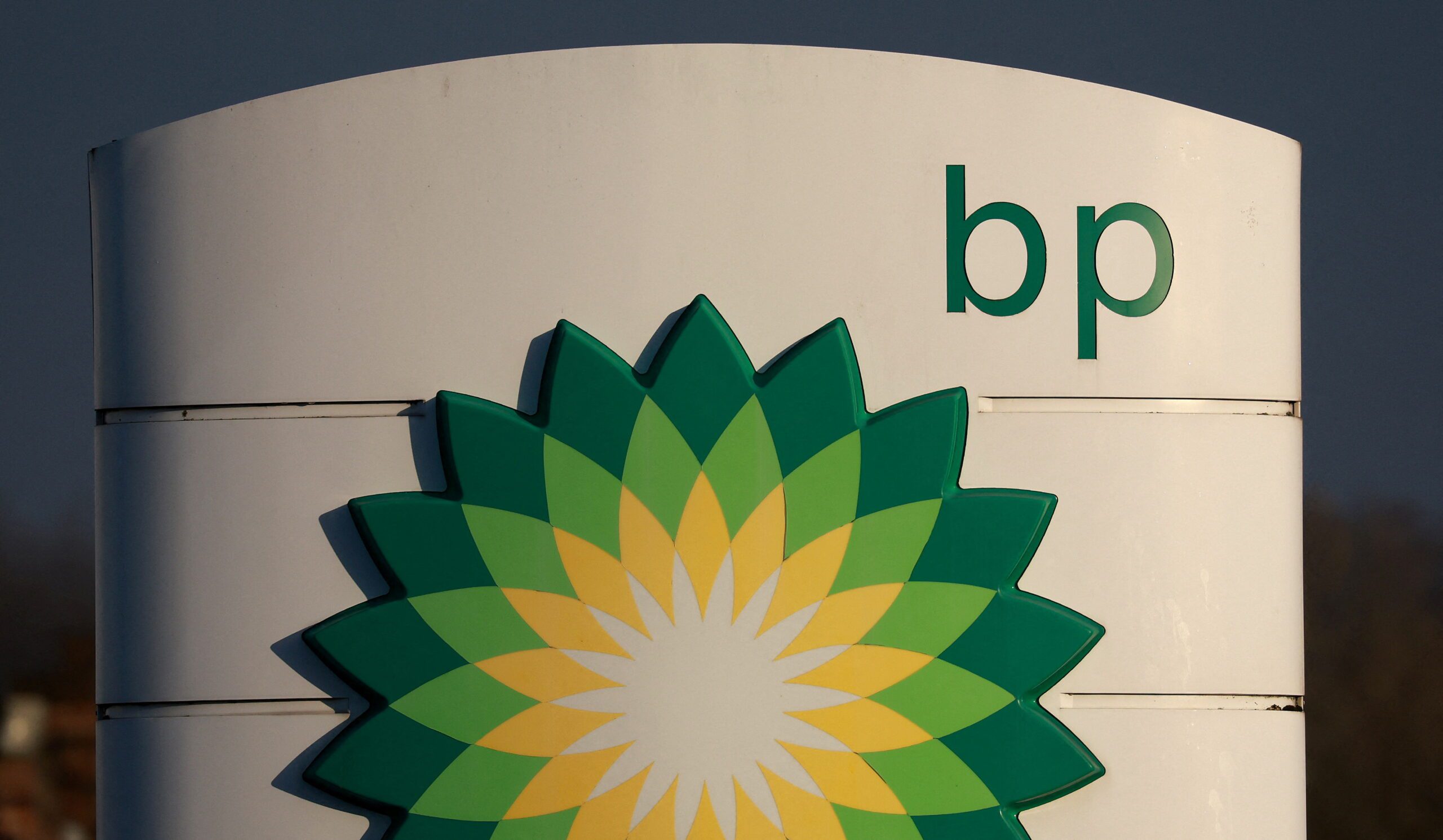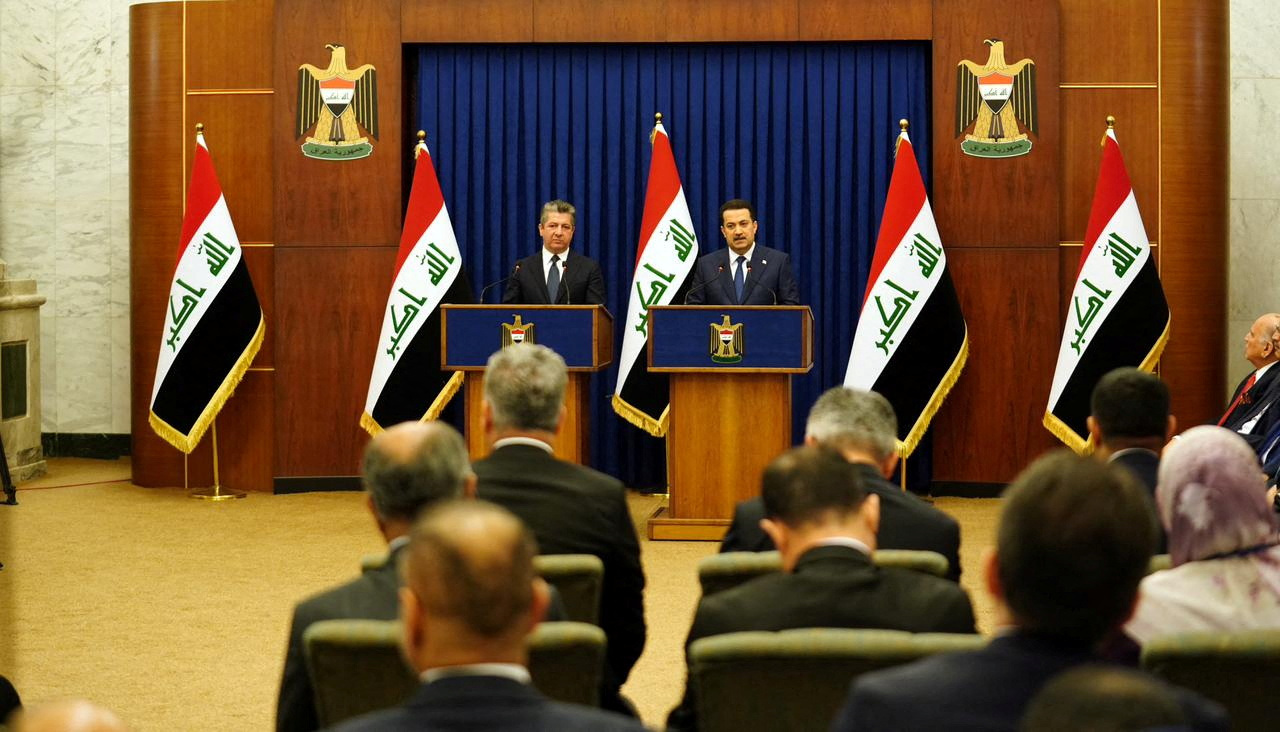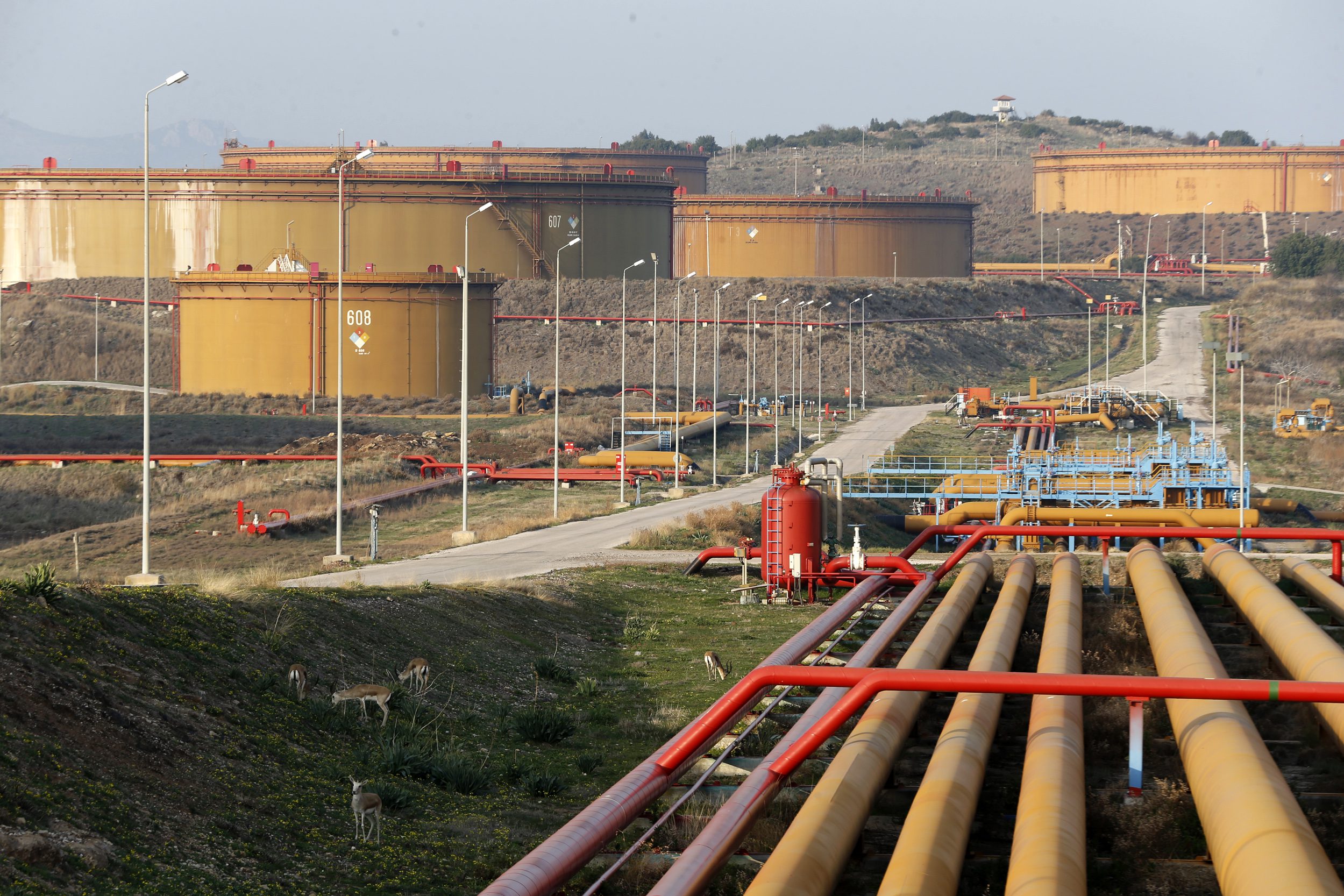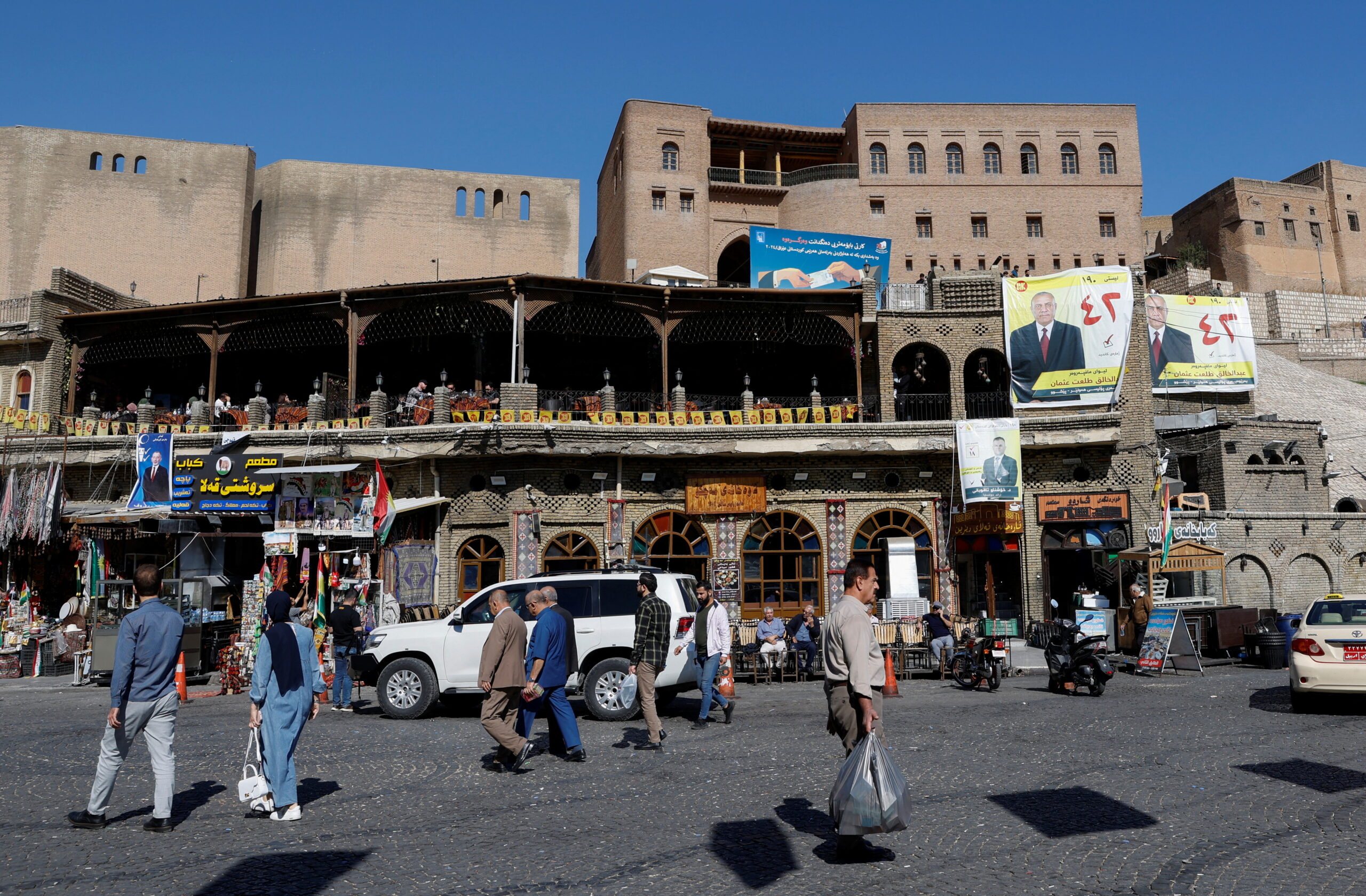Baghdad’s Financial Squeezing of Kurdistan Undermines U.S. Interests
Baghdad is weaponizing economic levers to punish the Kurdistan region for signing energy pacts with U.S. firms and for aligning with President Trump’s commercial diplomacy.
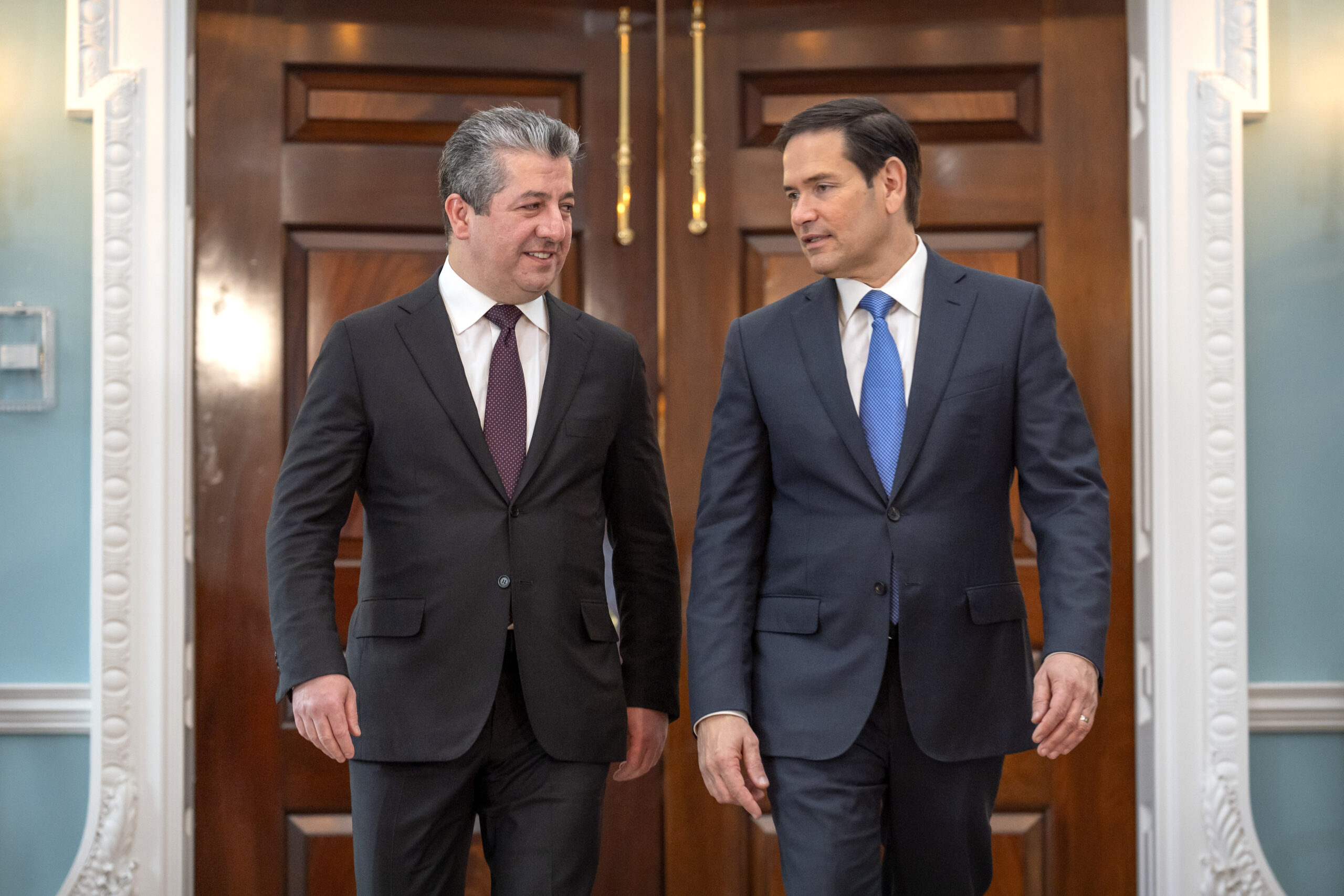
On May 20, the Kurdistan Regional Government finalized two multibillion-dollar gas agreements with U.S. energy firms in Washington, DC. This strategic alignment by Erbil not only reaffirmed its enduring commitment to a U.S.-led regional partnership but also directly dovetailed with what Secretary of Energy Chris Wright termed “commerce not conflict,” by fostering and expanding U.S. economic influence in the region.
The reaction from Baghdad was swift and punitive. The Iraqi Oil Ministry immediately declared the KRG energy deals “invalid and void.” On May 28, Iraq’s finance minister, Taif Sami, alleged that the Kurdistan Regional Government had exceeded its 12.67% constitutional share of the federal budget over the past three years. This allegation served as the pretext for a critical announcement: Future disbursements would be contingent on Kurdistan’s compliance with the federal “Tawtin” electronic payment system and the transfer of Kurdistan’s oil and non-oil revenue from the past two years. Iran-backed militia figures, including Qais Khazali of Asaib Ahl al-Haq, publicly accused the KRG of “separatism” and illegal oil smuggling. Simultaneously, Baghdad deepened its economic ties with Beijing, signing major infrastructure and energy contracts with Chinese firms. This move could be seen as a diplomatic rebuke to Washington and a calculated effort to shift Iraq’s economic orbit eastward.
Since 2014, the autonomous Kurdistan region of Iraq has faced a systematic campaign of economic strangulation by Baghdad. Baghdad has weaponized the federal budget, systematically withholding funds earmarked for the Kurdistan region. This financial coercion, cloaked in legal and bureaucratic justifications, has taken various forms, including budget cuts, blockades on oil exports, punitive trade restrictions, and judicial interventions designed to cripple the KRG and diminish its autonomy. These actions are not administrative disagreements but rather mechanisms of coercion aimed at a constitutionally recognized federal entity that has consistently served as one of the United States’ most stable partners in the region.
The consequences of Baghdad’s economic pressure have been profoundly detrimental for the Kurdish population. Unemployment in the Kurdistan region has soared, with youth joblessness on the rise, contributing to increased public protests. In trade-dependent cities, such as Zakho, new customs restrictions have paralyzed commerce, leading to the unemployment of over 10,000 logistics workers. Hundreds of manufacturing companies in Sulaymaniyah have been forced to shut down because their goods have been denied access to the wider Iraqi market. Kurdish farmers are seeing their produce spoil at federal checkpoints awaiting clearance, while those in disputed territories, such as Kirkuk, are being denied access to their own lands under flimsy security justifications.
This economic pressure has also fueled significant migration of young Kurds. Thousands of unemployed and politically alienated young people have undertaken the perilous journey to Europe. Educated professionals and entrepreneurs who once viewed the KRG as a rare island of opportunity within Iraq are now abandoning it in search of stability abroad. Their departure is a profound strategic loss, eroding the social and professional class vital for the region’s future reconstruction and development.
Beyond the immediate human impact, Baghdad’s assault on Kurdistan is dismantling the federal compact that underpins the post-2005 Iraqi Constitution. A series of rulings by the federal Supreme Court, widely perceived as aligned with central government interests in Baghdad, have systematically nullified core elements of Kurdish autonomy. The Kurdish oil and gas law was invalidated, the KRG Parliament was dissolved, minority quotas in Parliament were annulled and subsequently restored to half, and even electoral authority within the KRG was stripped away when a Supreme Court ruling tasked the Iraqi Independent High Electoral Commission to run the October 2024 Kurdistan region’s legislative elections. Since 1992, the Kurds had run their own polls. Compounding these issues, the 2024 Supreme Court’s decision gave the Iraqi Finance Ministry authority over the disbursement of KRG civil servants’ salaries. The ministry has still not released payments to civil servants owed since May. By stripping the KRG of its financial power, the Iraqi central government has been able to diminish the legitimacy of the Kurdish government in the public eye. In response to the salary crisis, out of desperation and frustration, Kurdish citizens are increasingly calling for reassertion of central power over the Kurdistan region, which appears to be the goal of the Shia ruling political elite in Baghdad.
While the KRG faces economic pressure for pursuing Western investment and strategic economic autonomy, the Iraqi federal budget continues to channel unchecked billions into the coffers of the Popular Mobilization Forces, a sprawling network of militias many of which are aligned with Tehran rather than Baghdad. In fiscal year 2022, the PMF’s official budget stood at $2.16 billion. By 2024, this figure had exploded to nearly $3.5 billion, representing a 62% increase in just two years. During this same period, the PMF’s ranks nearly doubled, reaching almost 250,000 members, significantly more than Iraq’s regular military.
The funding process for these militias is opaque, their expenditures unaudited, and their political activities largely unrestrained. These groups frequently interfere in elections, intimidate local populations, and maintain parallel economies, all while benefiting from substantial federal largesse. In contrast, Kurdish civil servants have frequently gone without salaries for months. This targeted allocation of state resources is a deliberate weaponization of public finances to reward political loyalty, punish dissent, empower PMF forces, and systematically weaken institutions that embrace Western partnerships. This financial control is part of an emerging model of centralized autocracy in Iraq, masked by procedural legitimacy and enforced through economic and legal weaponization.
These coercive moves are also a direct challenge to U.S. interests and influence in the region. Kurdistan was pivotal in the fight against the Islamic State group, has consistently hosted tens of thousands of people who have been internally displaced, and has modeled a more pluralistic and pro-Western form of governance than much of the rest of Iraq. U.S. companies continue to view the KRG as a promising environment for investment. Washington’s current silence amid Baghdad’s campaign of economic coercion risks not only alienating a loyal ally but also undermining its own “commercial diplomacy” and strategic interests.
The United States possesses leverage to address this crisis. One of the most potent, yet underutilized, instruments at Washington’s disposal is its influence over Iraq’s access to U.S. dollars. Iraq’s economy is heavily dollarized due to its oil exports, and the U.S. Treasury Department continues to safeguard Iraq’s foreign currency reserves and oil revenue, primarily held at the Federal Reserve Bank of New York. Every week, Baghdad receives substantial dollar shipments via the Central Bank of Iraq’s auction system, a process designed to stabilize the Iraqi dinar and regulate trade. However, these dollars are not politically neutral. They not only sustain Iraq’s broader financial system but also fund the budgets of militia groups hostile to U.S. interests and enable the very institutions being used to repress Kurdistan. For instance, the Central Bank of Iraq has denied Kurdish companies access to dollars and refused to regulate KRG-based currency exchanges, while approving more than 2,000 currency exchanges in federal Iraq, many of which directly benefit militia groups hostile to the United States and the KRG and sympathetic to Iran.
Continued U.S. protection of Iraq’s financial flows should not be unconditional. Access to the global dollar system should be contingent on adherence to basic norms of constitutional governance and the equitable treatment of all Iraqi citizens, irrespective of ethnicity. The misuse of these funds to reward militias and punish federal regions should trigger financial scrutiny by the United States and, if necessary, restrictions. The same U.S. Treasury mechanisms that have been deployed to sanction terrorist financing and corruption elsewhere should be applied to ensure constitutional compliance in Iraq. Iraq’s covert accommodation of anti-U.S. regimes through undisclosed energy deals and financial channels undercut U.S. sanctions policy and offer adversarial actors a critical economic lifeline. Should Baghdad persist in enabling these networks while sidelining U.S. and U.S. allies’ interests, a response from the U.S. Treasury, including the potential suspension of access to Iraq’s protected assets in the United States, must be considered. Washington has both the legal grounds and strategic imperative to act when its interests are consistently undermined, and its partners are being forced into alignment with its adversaries. Failing to do so enables the very dynamics that threaten Iraq’s unity and undermine long-term U.S. influence.
For over two decades, the Kurdish population has suffered from the protracted political standoff between Erbil and Baghdad. While the Kurdish leadership shares responsibility for aspects of the current financial crisis, the federal government is using the broader Kurdish population as leverage in its negotiations with the KRG. Punitive measures aimed at extracting political concessions often backfire by deepening instability and alienating the population that has long been a key partner in Iraq’s post-2003 recovery.
Therefore, Washington should exert diplomatic pressure to condemn the political weaponization of salaries, trade policy, and judicial rulings. It should make its substantial assistance, both bilateral and multilateral, conditional on the equitable distribution of resources and the restoration of revenue-sharing agreements enshrined in the Iraqi Constitution. Simultaneously, it should resume its crucial role as a mediator between Erbil and Baghdad, leveraging its diplomatic weight to reestablish a fair, transparent, and constitutionally grounded fiscal relationship.
The views represented herein are the author's or speaker's own and do not necessarily reflect the views of AGSI, its staff, or its board of directors.
